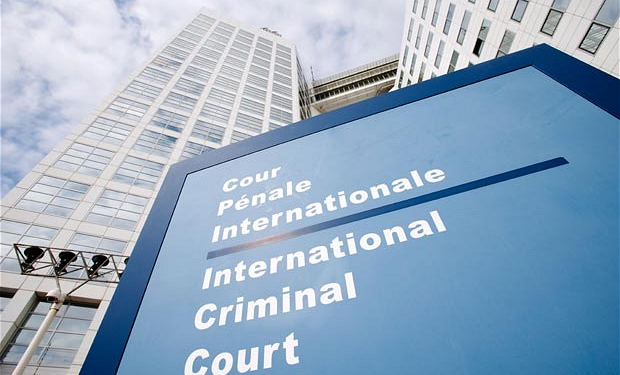By Judge Eboe-Osuji
The call from the AU makes it necessary to explain as follows. The termination of this case, without prejudice, is not at all in heed to the AU call. It may be necessary to recall an explanation made earlier. To begin with, the trial had proceeded to the close of the case for the Prosecution. The Defence had made submissions of no case to answer at that stage. In common law jurisdictions, the criminal justice process permits defence counsel to make no case submissions at the close of the case for the prosecution. The Rules of Procedure and Evidence at the Legacy website of the International Criminal Tribunal for Rwanda, the International Criminal Tribunal for the former Yugoslavia and the Special Court for Sierra Leone permitted defence counsel to make no-case submissions at the close of the case for the prosecution.
And in the case at bar, the Defence had, at the outset, sought to be able to make a similar motion at the close of the Prosecution case, if they felt that the case had been too weak. Both the Prosecution and the Victims’ Counsel agreed to it, despite the absence of explicit provision for the procedure in the ICC basic documents. Against that background, there was nothing at all unusual in the fact that the Defence had made no-case submissions in this case. Nor is there anything extra-ordinary in upholding a no-case submission when the prosecution case is seen to be weak.
As the discussion in Part II of this opinion shows, no-case submissions succeed in many instances in which they are made in national jurisdictions. That being so, had there not been the incidence of obstruction in this case, and the case for the Prosecution remained as weak as the evidential review in Judge Robert Fremr’s reasons shows, the Defence no-case submissions would no doubt have succeeded according to the principles of no-case adjudication that should apply in this Court. But, the incidence of obstruction of justice, due to actions attributed to forces operating from and within Kenya, compels me to declare a mistrial as the proper basis to terminate this case. So, either on the basis of no-case analysis (according to the applicable principles) or on the basis of mistrial resulting from actions of forces within Kenya, this case would have been terminated at this stage. And the AU call had nothing at all to do with it.
But the AU call to terminate the case makes it necessary to discuss now a key premise of that call: official position immunity. I discuss the matter at length in this Part, because the AU call may have raised a lingering question (perhaps in the minds of the African leaders who joined in that call) to the effect that the trial of Mr Ruto (after he became the Deputy President of Kenya) may have been a departure from an important norm of international law — the norm of official position immunity — in an effort to ‘target’ African leaders.
Customary international law
There is no mistake in saying that customary international law does recognise official position immunity: the mistake rather is in the thinking that such immunity has any application at the ICC, even aside from the provisions of article 27 of the Rome Statute. There is also the matter of general policy of international criminal law in need of elucidation, for a proper understanding of a cardinal norm codified in article 27 of the Rome Statute — the norm that directly repudiates official position immunity as a bar to the jurisdiction of the ICC. The norm is called the ‘Third Nuremberg Principle,’ which crystallised as a principle of international law in the aftermath of the Nuremberg proceedings resulting from the atrocities committed during the Second World War.
At the AU, the understanding was expressed that customary international law does not permit prosecution of sitting Heads of State before an international criminal court. Notably, it was that understanding that motivated a certain latter-day amendment to the Statute of the African Court adopted in June 2014 — granting immunity to incumbent senior officials of African States should they be sought for prosecution before the African Court, in the event that its criminal jurisdiction should come into operation.
By that amendment, article 46Abis of the Statute of the African Court now reads as follows: ‘No charges shall be commenced or continued before the Court against any serving AU Head of State or Government, or anybody acting or entitled to act in such capacity, or other senior state officials based on their functions, during their tenure of office.’
A number of observations deserve to be made in relation to article 46Abis. First, ahead of its adoption, the AU leadership had made policy pronouncements that were eventually codified as article 46Abis in the 2014 amendment. One instance of that policy pronouncement appears in the following statement — made in October 2013:
See, for instance, text of President Jonathan’s speech at the 11—12 October 2013 Extraordinary Session of the AU Assembly, published under the title ‘Nigeria’s President Jonathan seeks immunity for African leaders from ICC prosecution for war crimes, genocide. After reaffirming the principles deriving from national law and international customary law, by which sitting heads of state and government and other senior state officials are granted immunities during their tenure of office, the Assembly decided that, “No charges shall be commenced or continued before any international court or tribunal against any serving head of state or Government or anybody acting in such capacity during his/her term of office.
To safeguard the constitutional order, stability and integrity of member states, no serving AU Head of State or Government or anybody acting or entitled to act in such a capacity, shall be required to appear before any international court or tribunal during their term of office.
This is an excerpt from presiding judge, Eboe-Osuji’s, public redacted version of the decision on defence applications for judgments of acquittal in Ruto-Sang case.







